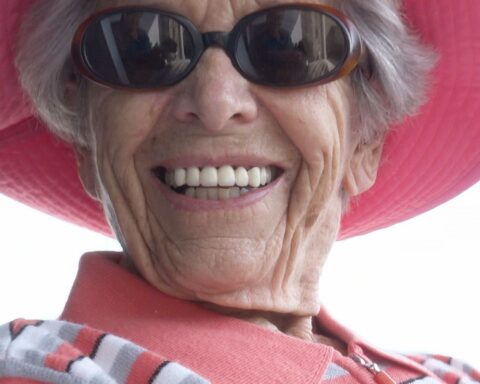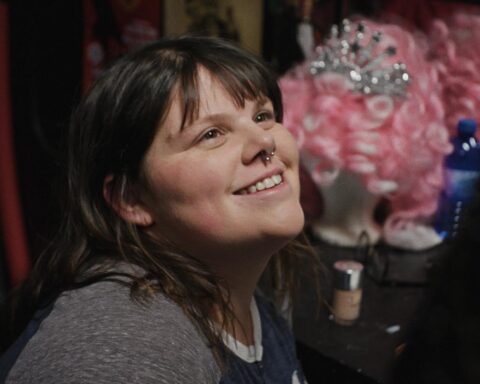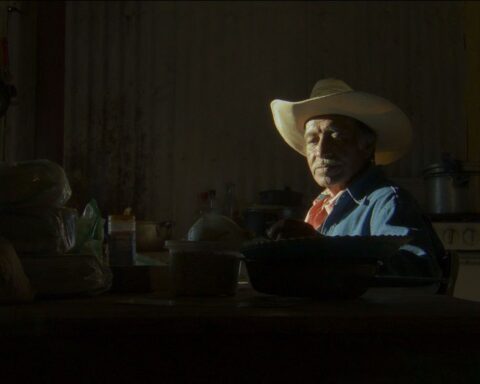Raving Iran
(Switzerland, 84 min.)
Dir. Regina Meures
A friend of mine delights in the idea of Trump’s inauguration getting blasted by a million drummers: First Nation drummers, Japanese ritual drummers, Brazilian drummers, Rastafari Nyabinghi drummers. With all of them slamming out their rhythms at the same time, they would drum down Babylon.
That energy drives the irresistible narrative of Regina Meures’s doc Raving Iran. The beat must go on—especially when autocrats and tyrants do their best to block it.
The film tracks two guys, Anoosh and Arash, who run a house music unit they whimsically call Blade and Beard. The duo live to DJ parties and raves in a country ruled by a system that forbids almost all musical expression, especially if it’s deemed western and therefore Satanic. Break the rules and you get raided, arrested, and maybe beaten to death. You’re in danger even if you’re “legal,” in accordance with the Islamic Republic’s crazy and erratic regulations.
The doc relays how Iranian lives are haunted by doubt and fear. Via shoot-from-the-hip, hidden-camera and cell-phone footage, we follow scenes like the boys getting stopped by cops who search their car; later, they peer out of an apartment window, and wonder if that guy hanging out in the street below may be a problem. In another scene, a bus driver announces a police spot check, warning passengers about alcohol or other illegal substances, telling women to check their hijabs.
The doc’s middle section follows Anoosh and Arash as they strive to set up a rave in the desert, far from prying eyes. At the same time, they look for a printer willing to handle their unapproved CD cover. In the Ministry of Culture and Islamic Guidance, a young woman seems to sympathize with the boys, but laughs and asks them if they’re crazy when they talk about a female lead singer with piercings and rejects a poster because a guy’s back is exposed.
Most of the printers and shop owners the boys contact won’t take their business. One guy complains that he got shut down for doing work that was okayed by the government. They’re frustrated by the tight controls and offer advice on how to circumvent rules. Through this story about DJing and raving in Iran, Meures makes it clear that the average Iranian is far from being some kind of religious fundamentalist. Iranians strain against the yoke of the turbaned mullahs and ayatollahs we keep seeing on Big Brother billboards in the background, and they go underground when they must.
The doc gets very touching when we see Anoosh and Arash ecstatically releasing themselves and partygoers during the desert rave and, after a big story turn, in Switzerland. They are “floating,” as one of them puts it.
Like the teenage rapper heroine of Iranian director Rokhsareh Ghaem Maghami’s doc Sonita, Anoosh and Arash are not overtly political people. But as Jamaica’s Sonjah Stanley Niaah says in her book Dancehall: from Slaveship to Ghetto, dance music and its rituals assert identity and transcend constrictions. Whether it’s hypnotic house with a Persian vocal track or diva Macka Diamond deejaying to a dancehall riddim, the beat must goes on because it brings on freedom.
RAVING IRAN Trailer (facebook.com/RavingIran; www.ravingiran.com) from Christian Frei on Vimeo.











